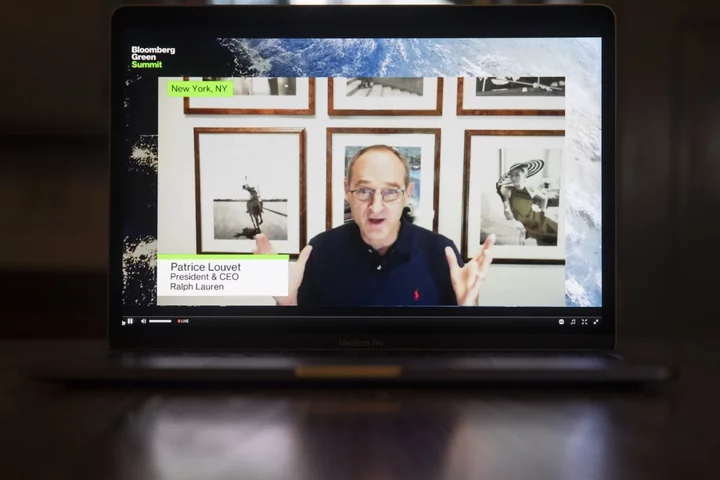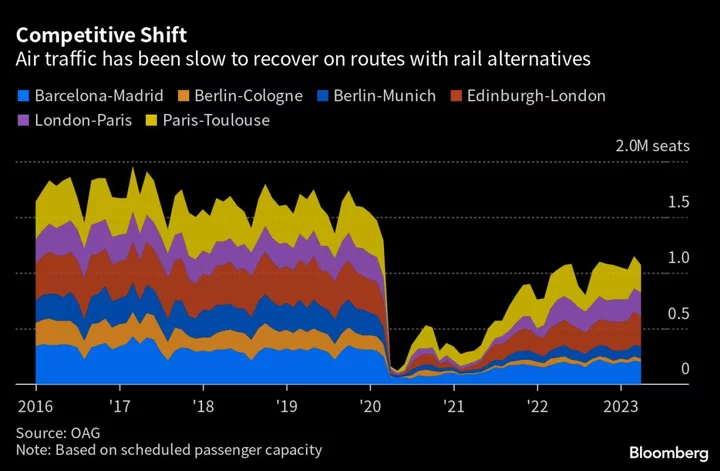Ralph Lauren Corp. is on track to meet its medium-term targets despite a revenue forecast for the current fiscal year that’s slower than expected, the company’s chief executive officer said in an interview.
“We’ve become incrementally more cautious in the near term,” CEO Patrice Louvet said in an interview. “It will likely get choppier.”
The company expects revenue growth in the US and Europe, particularly in the UK, to be slower than it forecast at an investor day in September. At the time, the apparel and accessories company said it was targeting percentage revenue growth in the mid-to-high single digits in each of the next fiscal years through the first three months of 2025, excluding currency-related fluctuations.
But on Thursday, Ralph Lauren said it’s expecting revenue growth in the low single digits for the current fiscal year on a constant-currency basis. While that’s below the investor-day targets, Louvet said revenue growth in the fiscal year that just finished was stronger than expected — up 10%. That will keep the company on track for its medium-term goals.
“We have a head start on revenue,” Louvet said. He added that he expects “good progression on profitability” in the current fiscal year.
“We are reaffirming our investor-day commitments for the top and bottom line,” Louvet said. “We feel good about our game plan.”
Read More: Ralph Lauren Rises as Price Increases Bolster Profit
While some US consumers are spending less on clothing and accessories, Ralph Lauren will be able to counter some of that slowdown with faster growth internationally, particularly in China and the rest of Asia. International operations generated more than half of the company’s profitability in the prior quarter for the first time. “That bodes well for the future,” Louvet said.
Ralph Lauren will continue to boost average unit retail prices, known as AUR, to at least cover inflation, Louvet added.
Average prices were up 12% in the prior three months versus a year ago. Over the past five years, the company has boosted average prices by 77% by boosting its cachet among shoppers through marketing campaigns and by decreasing its reliance on discounts in department stores, for example.









